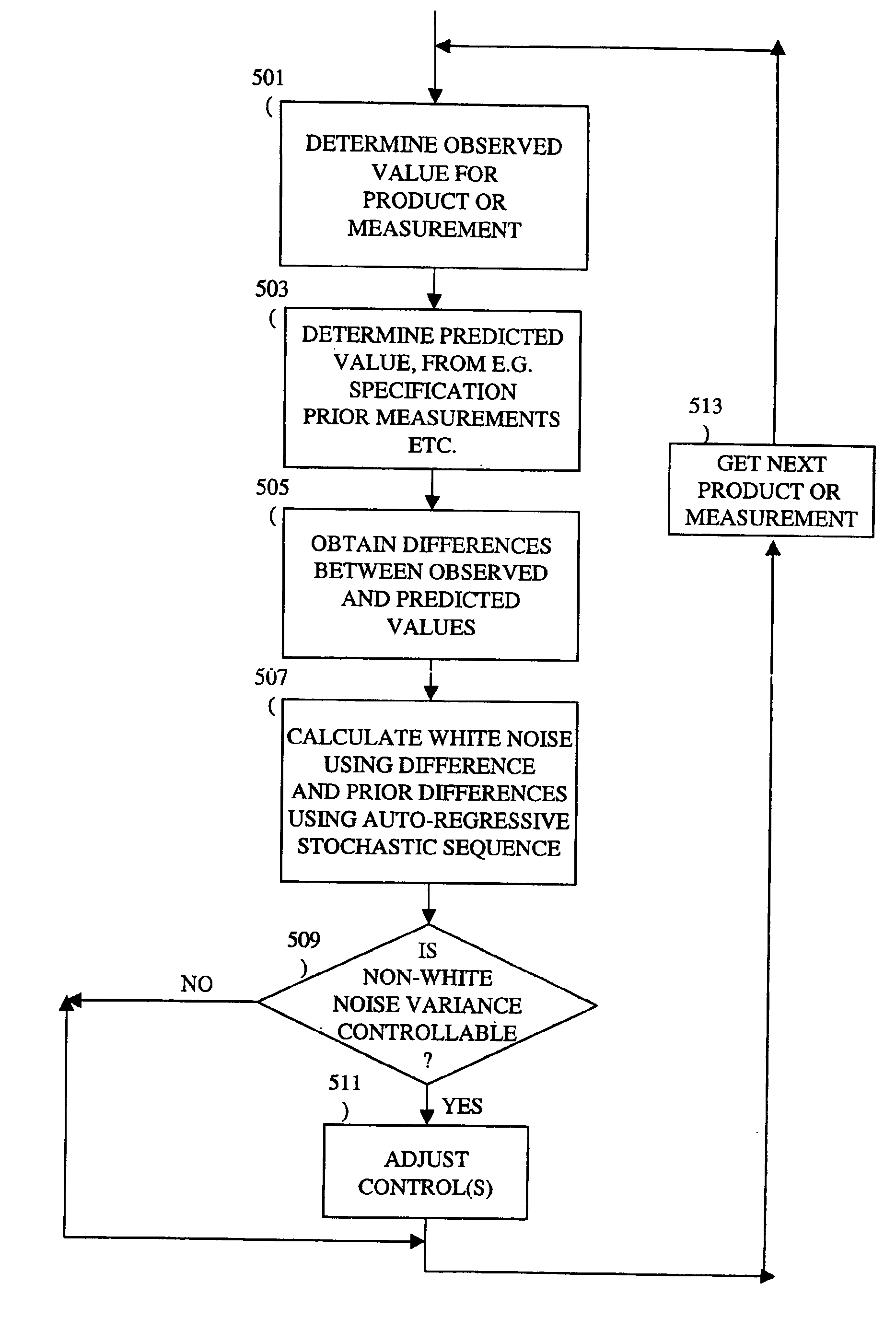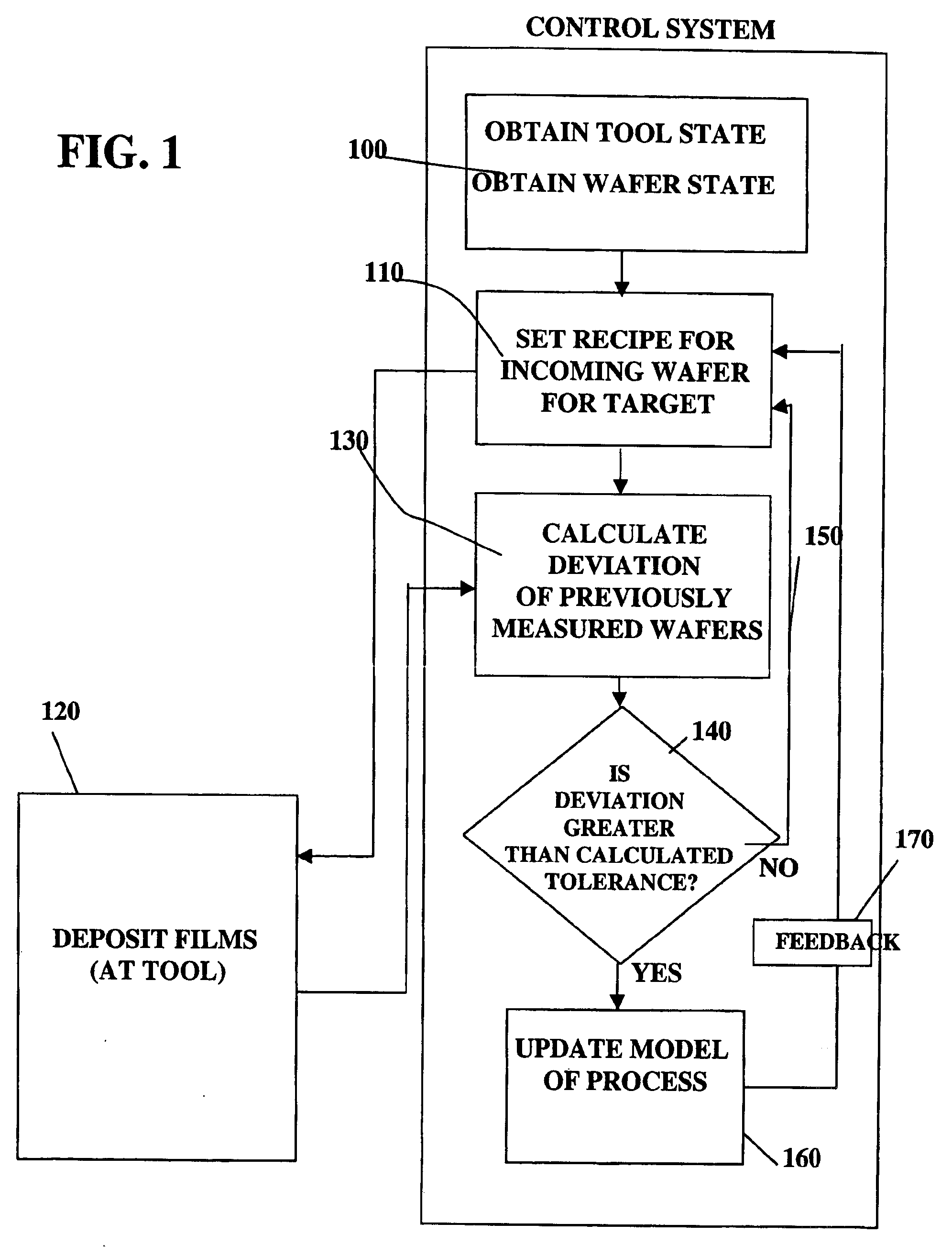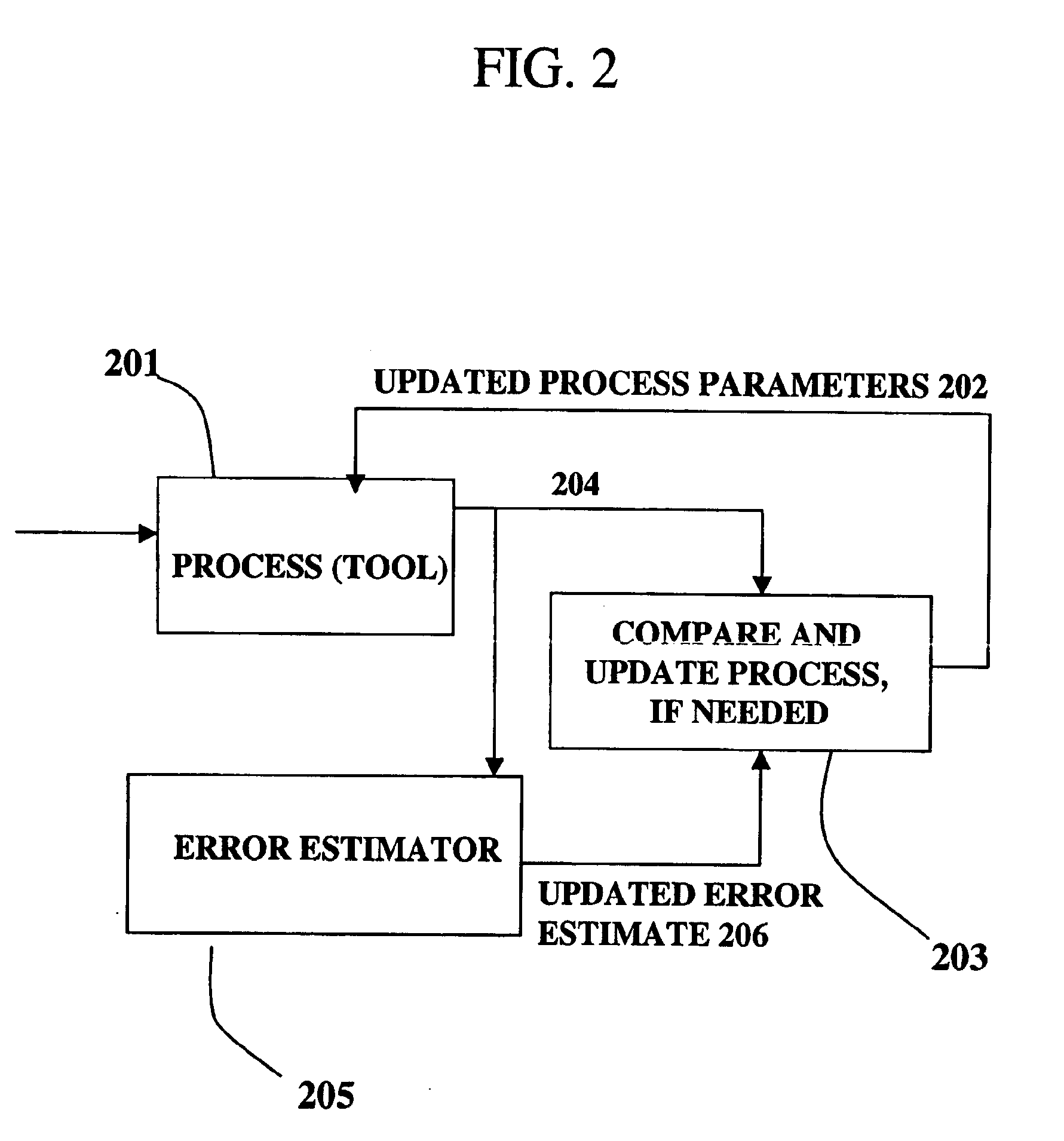Dynamic offset and feedback threshold
a feedback threshold and offset technology, applied in the field of computerimplementation and/or computerenabled, can solve the problems of random noise component of white noise and therefore relatively non-controllable, and achieve the effect of tighter control of feedback and feedforward variations, and non-controllability
- Summary
- Abstract
- Description
- Claims
- Application Information
AI Technical Summary
Benefits of technology
Problems solved by technology
Method used
Image
Examples
Embodiment Construction
[0026]Process control is used in semiconductor manufacturing to maintain one or more characteristics of the product, e.g., a semiconductor wafer, to within acceptable and predictable ranges. In implementing process control, a model of the process is developed that predicts wafer characteristics for a given set of input conditions. A manufacturing recipe is obtained based in whole or in part on the model. A product characteristic of interest is monitored during processing, and variations in the product output from the target value are used to provide a feedback loop for updating the deposition recipe in the process control box, as is shown schematically in FIG. 1.
[0027]According to the processing flow diagram in FIG. 1, initial processing conditions (e.g., an initial tool state and initial wafer state) are identified that will provide a desired wafer property in step 100. The initial conditions may be determined empirically or by using the processing model. If a processing model is u...
PUM
 Login to View More
Login to View More Abstract
Description
Claims
Application Information
 Login to View More
Login to View More - R&D
- Intellectual Property
- Life Sciences
- Materials
- Tech Scout
- Unparalleled Data Quality
- Higher Quality Content
- 60% Fewer Hallucinations
Browse by: Latest US Patents, China's latest patents, Technical Efficacy Thesaurus, Application Domain, Technology Topic, Popular Technical Reports.
© 2025 PatSnap. All rights reserved.Legal|Privacy policy|Modern Slavery Act Transparency Statement|Sitemap|About US| Contact US: help@patsnap.com



